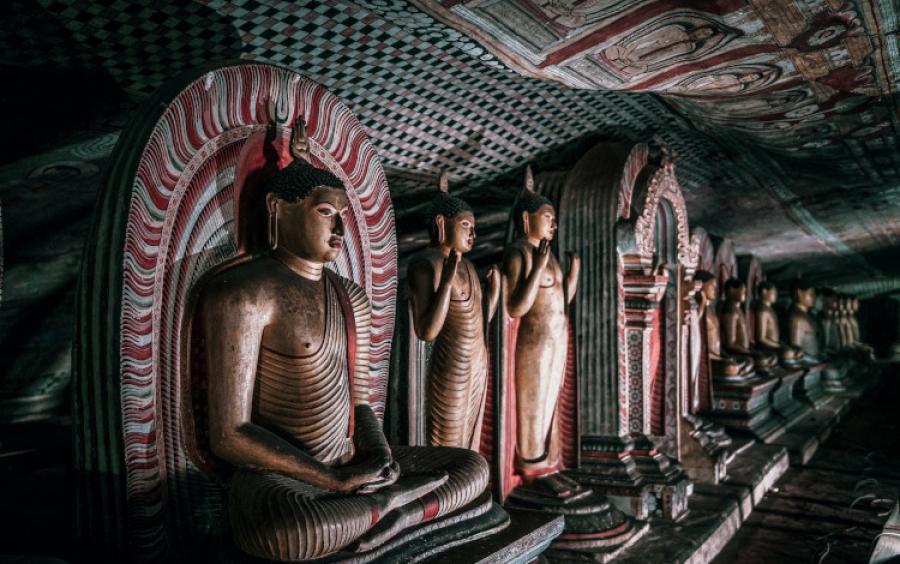Food Offered to Idols: The Priority of Love
Image

Reposted from Rooted Thinking. This post originally appeared at GFA’s blog Commissioned. Read Part 1.
The whole discussion of food offered to idols in 1 Corinthians 8-10 is still immediately relevant to billions of people in our world today. The applications of the passage are very important for all Christians. For now, we will focus on the immediate context of these chapters.
The Corinthian believers were asking:
- Should Christians buy meat offered to idols when they shopped in the market to save money?
- Could they buy meat offered to idols at all?
- Could Christians feast at the temples if invited to a party there?
- What if they just went into a temple to eat and did not participate in worship?
- Is it ever appropriate to eat food offered to idols?
It’s Just Food
In 1 Corinthians 8:1-6, Paul begins by confronting some of the Corinthian believers who were eating meat offered to idols. These boldly ate food offered to idols because they had strong faith in Jesus (possessed knowledge). In their pride, these thought that they could eat food offered to idols because they were unafraid of idolatry. These “strong” believers seemed to feel more righteous because they ate food offered to idols.
The “strong” believers had many things right. They knew that idols were not really gods, so that worshipping them had no real value. Paul quotes them: “an idol has no real existence” and that “there is no God but one” (v.4*).
They knew Jesus the One True God, Creator, Sustainer, and Savior. They had no desire to return to paganism. They knew that food itself is not important to God. They knew that supernatural powers do not really eat food offered to them. They were no longer afraid of gods or spirits, knowing God was with them.
Paul agreed with them on all these points, but they were wrong to conclude that they could eat food offered to idols. Their own knowledge was lacking.
It seems some of these brothers were overly confident in their spiritual freedom from idolatry. They wanted to flaunt it before their brethren who were not as confident as they. They believed their confidence showed their spiritual maturity.
It’s Worship
Paul wanted the “strong” believers to understand the struggles that “weak” Christians faced. These brethren, especially new Christians, were still afraid of their old gods and the spirits. They were not yet secure in their trust in God as the only One True God.
Paul acknowledged in verses 7-9 that, yes, some Christians were weak, not yet having fuller knowledge like the others:
However, not all possessed this knowledge. But some, through former association with idols, eat food as really offered to an idol, and their conscience, being weak, is defiled.
All of their lives previous to faith in Christ, these people ate food offered to idols as an act of worship. Eating the food offered was a part of the worship, and everyone joined in with that understanding. Not long ago they ate this meat offered in worship to demons and they did not want to eat it again. They wanted nothing to do with idolatry!
Stumbling Block or Rock?
These “weak” believers certainly did not need pressure from the “strong” believers to prove their spiritual maturity by intentionally eating food offered to idols. Christians have no business encouraging other believers to go against their conscience and be defiled. Rather than being a stumbling block to the weak, strong believers should be a rock of stability for them.
Paul rebuked the “strong”:
For if anyone sees you who have knowledge eating in an idol’s temple, will he not be encouraged, if his conscience is weak, to eat food offered to idols? And so by your knowledge this weak person is destroyed, the brother from who Christi died (v.10-11).
He also warned them that to not take his rebuke seriously was spiritually dangerous for them: “Thus, sinning against your brothers and wounding their conscience when it is weak, you sin against Christ” (v.12).
Love the Priority
Paul is clear: even if we are no longer fear demons or false gods, we should not eat food offered to them. No Christian should intentionally or knowingly eat food offered to idols. Paul lays down the principle:
Therefore, if food makes my brother to stumble, I will never eat meat, lest I make my brother stumble. (v.13)
Christian love demands that we restrict our “rights” and think of others before ourselves. If eating food offered to idols encourage our brethren to sin (which is definitely does), then to still eat it we “sin against Christ” (v.12). This isn’t just about food, or whether the food or idols are anything in themselves. It is about context, association with demons, and how our actions affect others.
Conclusion: Love for Christ and love for His people should lead us to completely abstain from eating food offered to idols.
* All Scripture quotations are from the ESV unless otherwise indicated.
Forrest McPhail Bio
Forrest has served as a missionary in Buddhist Cambodia in Southeast Asia since 2000. He presently serves as the Asia/Australia/Oceania regional director for Gospel Fellowship Association missions. He enjoys writing and teaching on missions and the Buddhist worldview. He and his wife, Jennifer, have 4 children.
- 135 views


Discussion